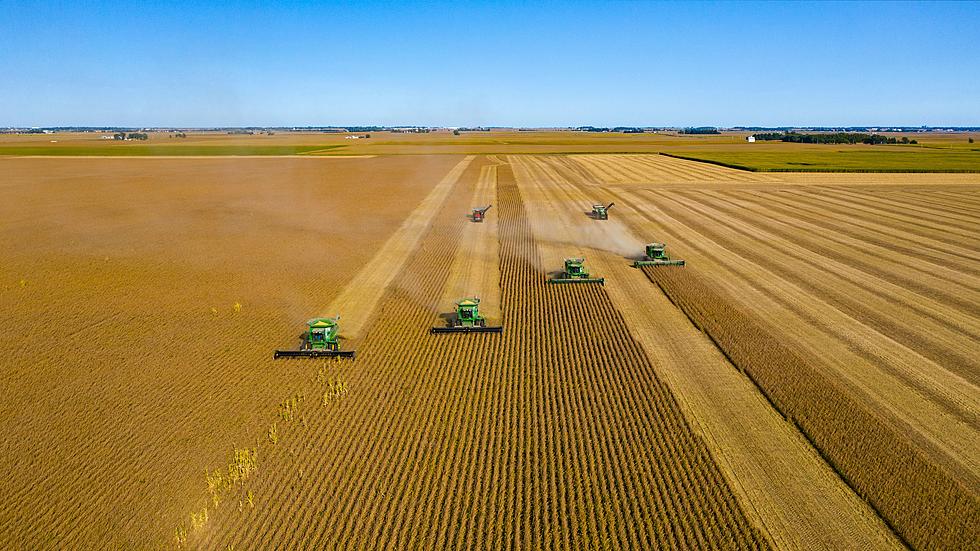
Iowa Corn and Soybean Growers Making Big Strides in the Industry
And back at the state capitol, the Iowa Soybean and Corn Growers Associations are tracking biofuels policies during the 2022 legislative session.
In an article by WCMY, Iowa Soybean Association Director Michael Dolch says they are focusing on opportunities for biodiesel consumption to grow. This growth would also grow demand for soybeans and soybean oil which would bring higher prices.
On the corn growers side, Lance Lillibridge, president of the Iowa Corn Growers Association says he is wanting to maintain funding for Iowa Renewable Fuels Infrastructure Program.
Looking at 2021 Yields
And speaking of corn and soybeans, Iowa had record yields in the 2021 growing season.
Overall, total corn production was 15.1 billion bushels, up 7 percent from 2020 according to a recent USDA report.
Soybeans also hit a total production record with 4.44 billion bushels, up 5 percent from 2020.
According to AgWeb, when it came to corn yields, Iowa saw a record high growing year. Iowa growers increased their bushel yield 15.8 percent from 2020.
Iowa also saw a record yield in soybean production in 2021 and from the 2020 growing year, producers increased their yield by 14.8 percent.
Iowa was one of twelve states to see records in both corn and soybeans.
Waterloo Foodbank Gets Big Donation
A food bank in Waterloo is one of many across the Midwest that is receiving milk donations from Kemps Milk.
According to KGAN, Kemps Milk and Hy-Vee are teaming up to donate almost 400,000 milk cartons to foodbanks. 46,000 of these milk cartons will be delivered to the Northeast Iowa Food Bank.
The rest will go to pantries in 16 counties across the area.
The milk is shelf-stable meaning it will have a shelf life of twelve months, making it perfect for food pantries.
Shelf Stable Milk
Seeing shelf-stable milk may be alarming but it is safe. Milk is made shelf-stable through ultra-high-temperature pasteurization. According to Dairy Discovery Zone, during this type of pasteurization, milk is heated to 280 to 300 degrees for two to six seconds to kill the harmful bacteria in milk.
To put that into perspective, the traditional milk you get at the grocery store is headed up to 161 degrees for 15 seconds during the pasteurization process.
This high-temperature process allows this milk to not be refrigerated and stay fresh up to twelve months.
Yep, You Can Stay in an Actual Iowa Grain Bin!
More From K92.3





![[WATCH] Caitlin Clark Crushes It In ‘Saturday Night Live’ Debut](http://townsquare.media/site/726/files/2024/04/attachment-original-20567C03-864E-482D-A51F-D1BEBE38BCDC.jpeg?w=980&q=75)



